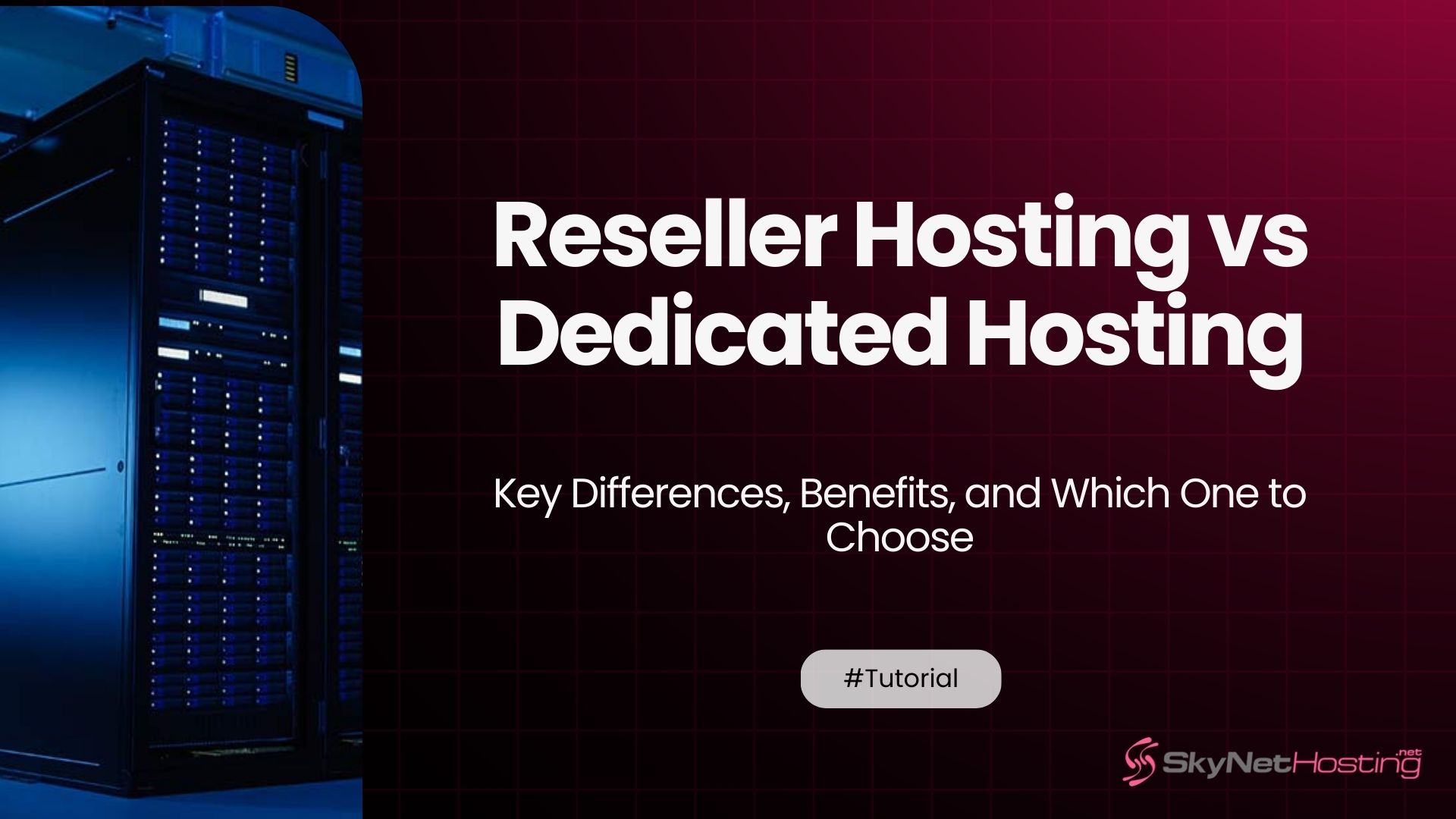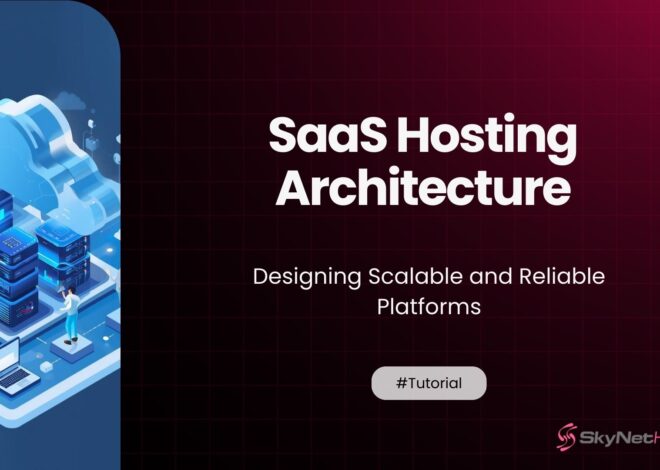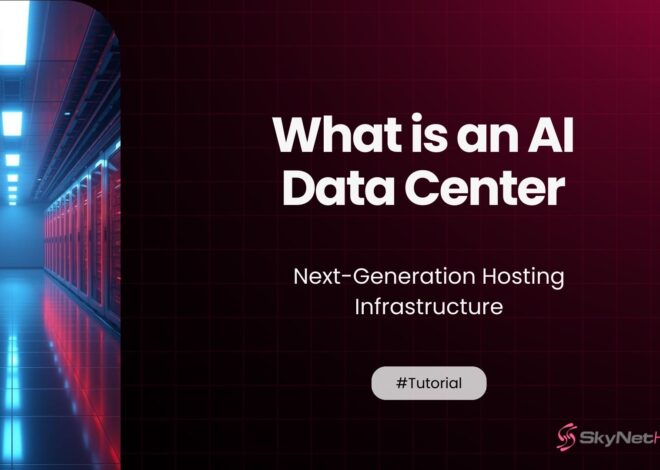
Reseller Hosting vs Dedicated Hosting – Key Differences, Benefits, and Which One to Choose
TL;DR
- Reseller hosting is an entry-level, low-cost solution where entrepreneurs buy server resources in bulk and repackage them under their own brand with minimal technical skill needed.
- Dedicated hosting gives full control, superior performance, and scalability, but requires server expertise, higher upfront investment, and more responsibility for management.
- Reseller hosting is ideal for newcomers, agencies, and those with fewer than 100 customers or limited technical proficiency; it’s quick, affordable, and handled by the provider.
- Dedicated hosting is better for businesses planning significant growth, needing custom configurations, high performance, and ready to manage server administration.
- Skynethosting.net offers both options, including migration assistance, 24/7 support, free WHMCS, end-user support, global locations, and enterprise hardware for seamless business scaling.
Starting a web hosting business can feel overwhelming. You’re faced with tons of hosting options. Two popular choices often come up: reseller hosting and dedicated hosting.
But which one is right for you?
I’ve been in the hosting industry for over 10 years. I’ve helped hundreds of entrepreneurs make this exact decision. Today, I’ll break down everything you need to know about reseller hosting vs dedicated hosting.
By the end of this guide, you’ll know exactly which option fits your business goals and budget.
What Is Reseller Hosting and How Does It Work?
Definition of Reseller Hosting
Reseller hosting is like being a middleman in the hosting world. You buy hosting space in bulk from a larger company. Then you divide it up and sell it to your own customers.
Think of it as digital real estate. You rent a big apartment building. Then you sublet individual rooms to different tenants.
The hosting provider handles all the technical stuff. Server maintenance, updates, security patches – they take care of it all. You focus on finding customers and growing your business.
Benefits for Entrepreneurs and Agencies
Starting a hosting business with reseller hosting has some major perks.
- Low startup costs. You can get started for as little as $6.95 per month. Compare that to buying your own dedicated server for $100+ monthly.
- No technical expertise required. The hosting provider manages the servers. You don’t need to know how to configure Apache or troubleshoot hardware issues.
- Quick setup. Most reseller accounts are ready in minutes. You can literally start selling hosting today.
- White-label branding. Your customers never know you’re reselling. Everything appears under your company name.
- Built-in tools. Most providers include WHMCS billing software (normally $15.95/month) for free. This automates invoicing, account creation, and customer management.
Limitations of Reseller Hosting
Reseller hosting isn’t perfect though. There are some downsides to consider.
- Limited control. You can’t install custom software or modify server settings. You’re stuck with what the provider offers.
- Shared resources. You’re sharing server space with other resellers. If someone else’s client gets hacked or uses too many resources, it could affect your customers.
- Profit margins. Since you’re paying the hosting company, your profit margins are smaller than owning your own servers.
- Dependence on provider. If your hosting provider goes down or changes their terms, your entire business is affected.
What Is Dedicated Hosting and How Does It Work?
Definition of Dedicated Hosting
Dedicated hosting means you rent an entire physical server. Nobody else shares that hardware with you.
You get complete control over the server. You can install any software you want. Configure settings however you like. It’s like owning your own house instead of renting an apartment.
The hosting company provides the hardware and internet connection. But you’re responsible for managing the server software and security.
Benefits of Having a Fully Dedicated Server
- Complete control. Install any operating system, software, or scripts you need. You’re not limited by shared hosting restrictions.
- Better performance. All server resources are yours. No other websites can slow down your customers’ sites.
- Enhanced security. Since you’re not sharing with other users, there’s less risk of security breaches affecting your server.
- Higher profit margins. You can host hundreds of websites on a single dedicated server. Your per-customer costs are much lower.
- Scalability. Need more power? Upgrade your server hardware or add additional servers to your setup.
Limitations of Dedicated Hosting
Dedicated servers come with their own challenges.
- High upfront costs. Quality dedicated servers start around $100-200 per month. That’s a big expense when you’re starting out.
- Technical knowledge required. You need to know server administration, security hardening, and troubleshooting. Or hire someone who does.
- Management responsibility. Server crashes at 2 AM? That’s your problem to fix. Updates, backups, security patches – all on you.
- Longer setup time. Getting a dedicated server properly configured can take days or weeks.
How Does Reseller Hosting Differ from Dedicated Hosting?
Resource Allocation and Control
With reseller hosting, you get a slice of a shared server. You might have 50GB of storage and 500GB of bandwidth to divide among your customers.
Dedicated hosting gives you the entire server. That could be 1TB+ of storage, unlimited bandwidth, and 32GB+ of RAM.
Control levels are completely different too. Reseller hosting limits you to what the provider allows. Usually just basic website hosting features.
Dedicated servers let you do anything. Want to run a game server? Go ahead. Need custom PHP settings? No problem.
Pricing and Affordability
Reseller hosting is much more affordable upfront. Plans start around $6.95/month at providers like SkyNetHosting.
Dedicated servers typically start around $100/month for basic specs. High-performance servers can cost $300-500+ monthly.
But here’s the thing about pricing: dedicated servers can be more profitable long-term. You can host way more customers on a dedicated server. So your per-customer costs are actually lower.
Let’s do some quick math:
- Reseller plan: $20/month, host 50 websites = $0.40 per site
- Dedicated server: $150/month, host 500 websites = $0.30 per site
Management and Technical Skills Required
Reseller hosting requires minimal technical skills. The provider handles server management. You focus on customer service and marketing.
Most reseller plans include user-friendly control panels. Your customers can manage their own websites without bothering you.
Dedicated hosting demands serious technical knowledge. You need to understand:
- Linux/Windows server administration
- Security hardening and updates
- Backup and disaster recovery
- Performance optimization
- Troubleshooting server issues
If you don’t have these skills, you’ll need to hire a system administrator. That adds $50-100+ per month to your costs.
Scalability and Long-Term Growth
Reseller hosting has built-in scaling limits. Once you hit your resource limits, you need to upgrade plans or add more reseller accounts.
This works fine for small hosting businesses. But it becomes expensive as you grow larger.
Dedicated hosting scales much better. Need more power? Upgrade your server specs. Want to host more customers? Add additional servers.
You can grow from hosting 100 customers to 10,000+ customers on dedicated infrastructure.
Which Is Better for Your Business: Reseller Hosting or Dedicated Hosting?
When to Choose Reseller Hosting
Reseller hosting makes sense in these situations:
- You’re just starting out. Limited budget? No technical experience? Reseller hosting lets you test the market without huge upfront costs.
- You want simplicity. Some people prefer focusing on sales and marketing. Let someone else handle the technical headaches.
- You’re an agency or freelancer. Managing hosting for a handful of clients? Reseller hosting provides an easy extra revenue stream.
- You need quick setup. Want to start selling hosting next week? Reseller accounts are ready almost instantly.
- You have under 100 customers. For small customer bases, reseller hosting is often more cost-effective than dedicated servers.
When to Choose Dedicated Hosting
Dedicated hosting is better when:
- You have technical expertise. Comfortable with server management? Dedicated hosting gives you maximum control and profit potential.
- You’re planning serious growth. Want to build a real hosting company with thousands of customers? You’ll need dedicated infrastructure.
- You need custom configurations. Special software requirements? Custom server settings? Only dedicated hosting provides this flexibility.
- You have the budget. Can afford $100-200+ monthly server costs? Dedicated hosting offers better long-term value.
- You want maximum performance. High-traffic clients need dedicated resources for optimal performance.
Cost-to-Benefit Analysis for Businesses
Let’s compare real numbers for a hosting business with 200 customers:
Reseller Hosting Scenario:
- 4 reseller accounts at $20/month each = $80/month
- Revenue: 200 customers × $5/month = $1,000/month
- Profit: $1,000 – $80 = $920/month
Dedicated Hosting Scenario:
- 1 dedicated server at $150/month = $150/month
- Revenue: 200 customers × $5/month = $1,000/month
- Profit: $1,000 – $150 = $850/month
Wait, reseller hosting shows higher profit?
Not quite. The dedicated server can handle 500+ customers easily. Scale up your customer base and the numbers flip dramatically.
Dedicated Hosting at Scale:
- 1 server at $150/month
- 500 customers × $5/month = $2,500/month
- Profit: $2,500 – $150 = $2,350/month
That’s nearly 3x more profit potential.
How to Migrate from Reseller Hosting to Dedicated Hosting?
Step-by-Step Migration Process
Many hosting businesses start with reseller hosting, then migrate to dedicated servers as they grow. Here’s how to make the transition:
Step 1: Plan your migration timeline. Don’t rush this process. Give yourself 2-4 weeks minimum.
Step 2: Choose your dedicated server. Select specs that can handle 2-3x your current customer load.
Step 3: Set up the new server. Install control panels, security software, and backup systems.
Step 4: Test everything thoroughly. Create test accounts and verify all features work properly.
Step 5: Migrate customers in batches. Don’t move everyone at once. Start with 10-20 customers as a test group.
Step 6: Update DNS and billing systems. Point domains to new server IPs. Update your WHMCS or billing software.
Step 7: Monitor closely. Watch for issues during the first week after migration.
Common Challenges and How to Overcome Them
- Email deliverability issues. New server IP addresses often have poor email reputation. Solution: Use third-party email services like MailChannels or SendGrid.
- Website compatibility problems. Different server configurations might break some websites. Solution: Test extensively before migration and offer customer support during the transition.
- DNS propagation delays. It can take 24-48 hours for DNS changes to fully propagate. Solution: Schedule migrations during low-traffic periods and communicate expected downtime to customers.
- Data loss risks. Moving hundreds of websites creates opportunities for mistakes. Solution: Create multiple backups and verify data integrity after each migration batch.
Importance of Choosing the Right Hosting Provider
Your choice of dedicated server provider is crucial for migration success.
Look for providers offering:
- Migration assistance. Some companies will help transfer your data for free.
- Flexible server configurations. You might need custom setups for optimal performance.
- 24/7 technical support. Server issues don’t wait for business hours.
- Multiple data center locations. Choose locations closest to your customers for better performance.
Why Choose Skynethosting.net for Reseller or Dedicated Hosting?
Affordable Reseller Hosting Plans
SkyNetHosting has been in business for over 20 years. They understand what resellers need to succeed.
Their reseller plans start at just $6.95/month. But price isn’t everything. Here’s what makes them special:
- Free WHMCS license included. This billing software normally costs $15.95/month. You get it free with any reseller plan.
- End-user support. Their technicians will help your customers directly. This saves you hours of support time each week.
- 25 worldwide server locations. Choose locations closest to your target market for better performance.
- Free domain reseller account. Start selling domains alongside hosting for additional revenue.
High-Performance Dedicated Servers
Need to scale beyond reseller hosting? SkyNetHosting offers powerful dedicated servers with:
- NVMe SSD storage. These drives are 200% faster than regular SSDs and 900% faster than traditional hard drives.
- LiteSpeed web servers. Up to 300% faster website loading compared to Apache servers.
- Intel Xeon processors with 128GB RAM. Handle thousands of websites without performance issues.
- CloudLinux operating system. Isolates customer accounts for better security and stability.
24/7 Expert Support and Reliability
Technical problems happen. When they do, you need support that actually knows what they’re talking about.
SkyNetHosting provides 24/7/365 support from real technicians. Not outsourced first-level support reading from scripts.
They monitor their servers proactively. Many issues are fixed before customers even notice problems.
Daily backups ensure your data is always safe. Weekly backups provide additional protection.
Making the Right Choice for Your Business
Choosing between reseller hosting and dedicated hosting isn’t just about features and pricing. It’s about matching your business goals with the right infrastructure.
Start with reseller hosting if:
- You’re new to the hosting industry
- Your budget is under $50/month for hosting costs
- You have fewer than 100 potential customers
- You prefer simplicity over control
- Technical server management isn’t your strength
Jump straight to dedicated hosting if:
- You have server administration experience
- Your budget allows $100+ monthly hosting costs
- You’re planning to scale beyond 200-300 customers
- You need custom server configurations
- Maximum performance is crucial for your target market
Final Thoughts on Reseller Hosting vs Dedicated Hosting
Both reseller and dedicated hosting can build successful businesses. I’ve seen entrepreneurs make six-figure incomes with both approaches.
The key is choosing the option that matches your current situation and growth plans.
Reseller hosting offers an easier entry point. You can test the market and learn the business with minimal risk.
Dedicated hosting provides more long-term potential. Higher profit margins and unlimited scalability make it ideal for serious growth.
Many successful hosting companies start with reseller hosting, then migrate to dedicated servers as they grow. This hybrid approach lets you start quickly while building toward bigger opportunities.
How Skynethosting.net Helps You Make the Right Choice
SkyNetHosting understands that every business is different. Their team can help you choose the right starting point for your specific situation.
Need reseller hosting to get started quickly? Their plans include everything needed to launch your hosting business today.
Ready for dedicated servers? They offer migration assistance to help you transition smoothly from reseller hosting.
Contact their team via live chat to discuss your specific needs. With 20+ years of experience helping hosting entrepreneurs succeed, they’ve seen every situation imaginable.
The hosting industry offers incredible opportunities. Choose the right foundation, and you’ll be building a profitable business for years to come.
FAQs
What’s the main difference between reseller and dedicated hosting?
Reseller hosting divides shared resources for client resale, managed by the provider, while dedicated hosting gives exclusive use of a physical server with full admin control.
Who should choose reseller hosting for their business?
It’s best for new entrants, agencies, or small companies with limited customers who want a quick, affordable launch without deep technical management.
What advantages does dedicated hosting offer over reseller plans?
Dedicated servers enable unlimited growth, advanced customization, optimal performance, and enhanced security—ideal for scaling to hundreds or thousands of customers.
How does the cost and profit structure compare between reseller and dedicated hosting?
Reseller hosting has lower entry costs ($6.95/month) but smaller margins at scale, while dedicated hosting requires more investment but offers higher profit potential as client base grows.
How can hosting businesses transition from reseller to dedicated hosting?
Plan a phased migration, test new server setups, move customers in batches, and leverage provider migration help to minimize risks and downtime as you scale.



